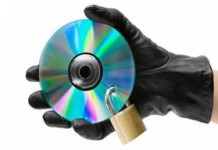 Somewhere in between early college and late college, my media
Somewhere in between early college and late college, my media
purchasing habits changed. I went from needing a physical copy of
everything, to preferring a digital copy or a free copy I could return
once I was finished with it. Maybe this could be because I was sick of
moving all that junk every time I moved during college (every year),
or maybe it was because I got older and was more realistic about
whether I was really going to watch that movie or read that book
again. I’ve been purging all the stuff for years now and only a few
choice books and comics remain. All the CDs and DVDs and video game
boxes are gone.
I’d like to think that I’ve matured, but it’s probably more likely
that I was swayed by social trends alongside getting older. I remember
being a kid and dreaming about having a house someday with a library
that would rival Neil Gaiman’s – that’s the motivation behind keeping
all that stuff, but now, as an adult thinking about buying a house in
the next few years, I dream about a Spartan dwelling wired with media
access devices, but no physical media.
And I don’t think it’s just me. People are embracing e-books, digital
downloads, streaming, and other non-physical methods of media access.
These things get more prevalent every day.
I think people are coming to realize that physical media, under all
that pretty, colorful packaging, is just a portal to an experience. If
you own a DVD, you own something physical: a plastic disc in a pretty
cardboard and plastic holder. If you watch a movie – you have an
experience. While plastic disc peddlers have done a damn fine job of
creating the link in our minds between the experience of a movie and
the movie’s physical media, the more digital becomes the norm, the
more that link is shattered.
And rightly so.
Maybe I just make a bigger deal of things because I like to believe
the world is a complex and interesting place. Maybe it’s not – it
could really be that digital is just cheaper and more convenient and
that explains most, if not all, of digital’s popularity. But I don’t
think it’s that simple. I think there is a paradigm shift in our
perception of what media is – and now, with digital getting more and
more popular, the notion that media is an experience (an event, i f
you prefer) is much easier to divide from the idea that media is a
plastic disc or a paper book. Maybe books are a slightly different
case because the act of reading is an important part of the
experience, whereas opening a DVD and loading in a disc is more
negligible.
But no matter what, you can never repeat an experience. Of course, you
can try by owning the media that gives you a portal to a quantifiable
portion of the experience.
But that time you watched Garden State with a girl and then kissed her
for the first time on her couch? Or sped down a dirt road in the
pounding rain with the windows down, soaked the to the skin, quivering
with young lust and listening to Coldplay’s Yellow? Or that sunny
cicada summer you read Zen and the Art of Motorcycle Maintenance in
your car, eating hot french fries, after class and before you had to
go to work, in those glorious stolen hours?
You’re never gonna get those back even if you buy the physical media.
I’d like to think people are seeing that idea – but maybe it’s easier
to Netflix something from the couch than to waddle down to the local
Wal-mart to buy a copy.
Hard to tell.


































“You’re never gonna get those back even if you buy the physical media…”
How painfully true.
In the Victorian age, people filled their houses with clutter because they could…mass manufacturing made it possible for the middle class to have stuff. Lots of stuff. Today we look back at those Victorian living rooms with a bit of a smile. We no longer have to revel in the novelty of having stuff because stuff has become a curse.
On TV, I see constant ads for storage places, where you can hide your stuff. How much easier, though, not to accumulate stuff in the first place. Digital media means that your stuff takes essentially no room. We don’t have to have houses and offices for stuff, we can have houses and offices for people. As a recovering book-hoarder, I’m still working on achieving the zen of all-digital stuff, but at least I see it as a goal.
Rob Preece
Publisher
Rob, what made you switch from being a book hoarder to a digital monk? That’s the question I’d really like answered.
Digital offers something more than just the experience or the physical media though – it offers place shifting. Being able to see, hear and experience the entertainment wherever you are has become far more important than owning the physical media it’s on. As long as you have access to the content itself, the physical trappings are more of a liability than a benefit.
Frode, I agree with you. Anywhere access to a library on a small device is one of the key features of why digital is awesome. There are tons of other advantages, too. So the real question is: are these advantages why people are shifting? Or is it just because digital media is easier to access and people like easier? Is that ease enough to explain it?
I was primed to switch to digital because I was running out of space for more books, but I was still dubious over whether I would like it. I never liked reading articles on my computer screen, so I wasn’t sure I’d like reading books on a screen. When the Sony reader came out, I played with one at Borders, and saw that the screen was actually very nice for reading, but that book buying was still kind of awkward and the catalog was limited. When the Kindle came out, I hesitated for about six months, then finally decided to treat myself with one as a birthday present (a K1, two years ago), and fell in love. I knew I was hooked when there was a book I wanted to reread, dug up my old copy of it, started reading it, and decided I’d rather read it on the Kindle and bought it again.
It’s the ease of access, it’s the weight (lighter than most books), it stays open to the page I’m reading without my having to hold it open, I can switch books easily, and I’m always in a bookstore. I can find my books (not easy to do when you have a lot of physical books), I can tell if I’ve already bought that book (I have multiple copies of several books because I forgot that I already had it) and I can sample a book before buying.
I’ve gone digital with books faster than with any other media. I don’t stream that many movies (technology is still too glitchy), and most of the music on my iPod is ripped from CD’s I own and still have. I’ve started buying more music digitally, but I’m still as likely to buy a CD as to download, whereas I buy an ebook preferentially.